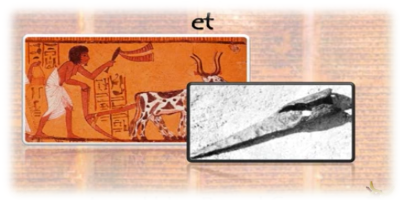I was asked to provide some insight into the word “commit” from the following passage and interpret it from a Hebraic perspective.
Commit thyself unto Jehovah; Let him deliver him: Let him rescue him, seeing he delighteth in him. (ASV, Psalm 22:8)
As I began my investigation into this word and its meaning within the context of the verse, I quickly realized that this verse would make an excellent case study to show how important it is to understand Hebrew vocabulary, poetry and philosophy when studying the Bible.
Before we get into the meaning of the Hebrew word for “commit,” we need to understand that this verse is written with a chiastic structure, a form of poetry common to Biblical Hebrew, especially the book of Psalms. Here is how this verse can be written, showing the chiastic structure.
1a. Commit thyself unto Jehovah
1b. Let him deliver him
2b. Let him rescue him
2a. Seeing he delighteth in him
If you will notice, 1a is parallel with 2a and 1b is parallel with 2b. Also notice that the words “deliver” and “rescue” are synonyms, words with very similar meanings. This is another common form of Hebrew poetry called parallelisms. This means that the words “commit” and “delight” are also synonyms. Of course, these two words are not synonyms in the English language, which means we need to find out what these words mean in the Hebrew language.
The Hebrew word translated as “commit” is the Hebrew verb galal (Strong’s #1556), which Strong’s dictionary defines as “to roll (literally or figuratively)” and in the KJV Bible this word is translated as commit, remove, roll (away, down, together), run down, seek occasion, trust, wallow.
The Hebrew language is a concrete language, which means that words with a concrete meaning are used to express abstract ideas. So to really understand the concrete meaning of this word, let’s look at some of the verses that use this word in a concrete way.
…and they rolled the stone from the well's mouth… (KJV, Genesis 29:3)
And Amasa wallowed in blood in the midst of the highway… (KJV, 2 Samuel 20:12)
…in the desolation they rolled themselves upon me. (KJV, Job 30:14)
So, why did the translators translate this word meaning “to roll” as “commit” in Psalm 22:8? Because “roll over to Yahweh” is not how we speak in English, so they translated this concrete word with an abstract one in order for the English reader to be “more comfortable” with the verse.
Now let’s take a look at the word “delight.” This is the Hebrew verb hhapheyts (Strong’s #2654), which Strong’s defines as “properly to incline to; by implication (literally but rarely) to bend; figuratively to be pleased with, desire.” The KJV translates this word as delight, please, desire, will, pleasure, favour, like, move and would. All of these words are abstract, with the exception of “move,” so let’s take a look at the verse where the word hhapheyts is translated as “move.”
He moveth his tail like a cedar: the sinews of his stones are wrapped together. (KJV, Job 40:17)
I have found the book of Job to be an ancient dictionary to the Ancient Hebrew language. What I mean by this is that Hebrew words are often used in a figurative sense, except in the book of Job, where the vocabulary is more frequently used in a concrete way and is very useful in uncovering the concrete meaning of a word.
This word apparently means “to wag,” like a dog does with his tail when it is excited, and figuratively this word means “to be delightfully happy.” Because this word is a synonym with galal, we can conclude that galal more literally means “to roll over in excitement.”
Now that we understand the Hebrew words galal and hhapheyts, let’s put the concrete meanings of these words into Psalm 22:8
Roll thyself over to Jehovah; Let him deliver him: Let him rescue him, seeing he wags in him.
By interpreting the Bible this way, we can better see into the mind, culture and philosophy of the Ancient Hebrew people.

Like what you’re discovering? Continue the journey from Bible reader to translator.
|





